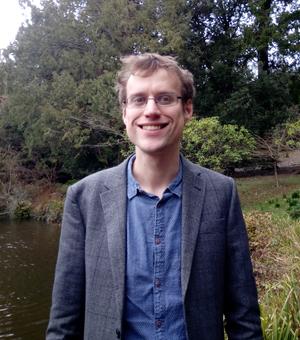Dr David Parry
My research interests cluster around the intersection of rhetoric, religion and intellectual history with English literature of the sixteenth to eighteenth centuries, especially the work of John Milton, John Bunyan, and other Puritan and Dissenting writers. I also have broader cross-period interests in rhetoric, allegory, neurodiversity studies, and the intersection of Christian theology with literary studies. Prior to taking up my current post at Regent’s Park College, I was a lecturer in early modern literature at the University of Exeter from 2017 to 2024, and previously taught for colleges of the University of Cambridge where I completed my PhD.
My first book, The Rhetoric of Conversion in English Puritan Writing from Perkins to Milton, was published by Bloomsbury Academic in 2022. This book demonstrates how the rhetoric of conversion in Puritan writing entails a conversion of rhetoric, with Puritan writers repurposing the principles of classical rhetoric for their pastoral persuasive goals, as well as moving from a suspicion of imagination to a rehabilitation of imagination through literary genres such as Bunyan’s allegories and Milton’s epics.
Reflecting my wide-ranging interests across historical periods and academic disciplines, I am the editor of The Oxford Handbook of Allegory (forthcoming in 2026). Although 'allegory' historically escapes easy definition, it can be broadly defined as a mode of communicating that says one thing and means another. This collection introduces and explores the history and practice of allegory from Plato to the Disney/Pixar Inside Out films, with an international and interdisciplinary team of 41 contributors drawing on fields including literary studies, film studies, art history, classics, mathematics, theology, and cognitive science.
During my time at the University of Exeter, I undertook a three-year Leverhulme Trust-funded project entitled Writing Religious Conflict and Community in Exeter (ReConEx), a project which broadened in scope to include discussion of religious writing across the South West from 1500 to 1800. Our project website includes an online anthology of annotated primary texts on religious identities in early modern Exeter, blog posts and podcast interviews with scholars with related interests. I am currently co-editing an essay collection arising from this project with my project colleagues Philip Schwyzer and Niall Allsopp, entitled Writing Faith and Place: Religious Identities in Southwest England 1500-1800 (Manchester University Press, forthcoming 2027).
Current and future research plans include publications and potential projects on Milton, Bunyan, literary Platonism, and early modern neurodiversity studies. My second monograph project is provisionally entitled Rhetoric and the Quest for Wisdom in the Early Modern Period, examining how writers including Shakespeare, Milton, Francis Bacon, John Donne and Lucy Hutchinson used words to frame the world in their search for an integrating principle that brings together the particulars of human thought and experience.
My current teaching is primarily in the early modern period, including FHS Paper 3 (1550–1660), Paper 4 (1660–1760), and Paper 5 (Shakespeare). I also contribute to teaching for Prelims Paper 1 (Introduction to English Language and Literature).
I would be open to supervising Masters and DPhil students in early modern English literature, particularly in relation to religious writing, allegory and rhetoric (especially Puritan and Dissenting writers such as Milton and Bunyan). I currently co-supervise a PhD on seventeenth-century Dissenting writing at the University of Exeter that is nearing completion.
I can be found on Twitter/X @DrDParry.
As a graduate student, I contributed to Darkness Visible, a widely used online educational resource introducing Milton and Paradise Lost to first-time readers.
The website for the Writing Religious Conflict and Community in Exeter (ReConEx) project includes an online anthology of annotated primary texts on religious identities in early modern Exeter that I co-edited, along with a series of podcast interviews with scholars that I co-hosted. I have also been interviewed for podcasts hosted by the Ecclesiastical History Society and Kids Talk Church History.
I am the Reviews Editor for Bunyan Studies, journal of the International John Bunyan Society, and write an annual review of publications on John Bunyan for The Year’s Work in English Studies.
I have peer-reviewed book proposals for Ashgate and Routledge and journal articles for Tulsa Studies in Women’s Literature, Bunyan Studies, International Journal of the Classical Tradition, Problems of Literary Genres/Zagadnienia Rodzajów Literackich, Intellectual History Review, and Studies in Church History.




